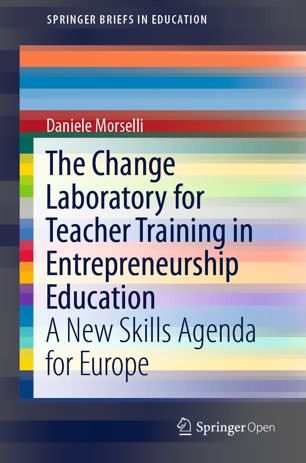

Most ebook files are in PDF format, so you can easily read them using various software such as Foxit Reader or directly on the Google Chrome browser.
Some ebook files are released by publishers in other formats such as .awz, .mobi, .epub, .fb2, etc. You may need to install specific software to read these formats on mobile/PC, such as Calibre.
Please read the tutorial at this link. https://ebooknice.com/page/post?id=faq
We offer FREE conversion to the popular formats you request; however, this may take some time. Therefore, right after payment, please email us, and we will try to provide the service as quickly as possible.
For some exceptional file formats or broken links (if any), please refrain from opening any disputes. Instead, email us first, and we will try to assist within a maximum of 6 hours.
EbookNice Team

Status:
Available0.0
0 reviewsThis open access book illustrates a new type of formative intervention for in-service teacher training in entrepreneurship education. The book describes a Change Laboratory and shows how teachers and workshop assistants develop the idea of a multidisciplinary project entailing the design of a self-service and parking lot in a dismissed area close to the city centre. The multidisciplinary project is taken as example of how an idea is debated and turned into collective action and change, the very essence of initiative and entrepreneurship. The Change Laboratory thus increases the participation of students, teachers and stakeholders in the school towards a new curriculum through the implementation of a multidisciplinary project connecting school with the world outside and working life.
The book features a foreword by Luke Pittaway, USASBE Entrepreneurship Educator of 2018.
The manuscript discusses key concepts of Cultural Historical Activity Theory’s Change Laboratory as a formative intervention in a coherent and accessible manner. Beyond that it carefully illustrates how the Change Laboratory and its principles of double stimulation and ascending from the abstract to the concrete can be used as a theory of change to address one of the difficult and new demands of the European Union’s New Skills Agenda. The author takes the reader through the expansive learning journey and uses strong evidence to show how a new object can be developed, and how associated tensions and contradictions can be surfaced and tackled by actors with a partially shared object, and how a new concept can be formed and enriched through implementation and reflection in a manner that generates collective transformative agency. (Reviewer)
This project has received funding from the European Union’s Horizon 2020 research and innovation programme under the Marie Skłodowska-Curie Grant Agreement No. 654101.